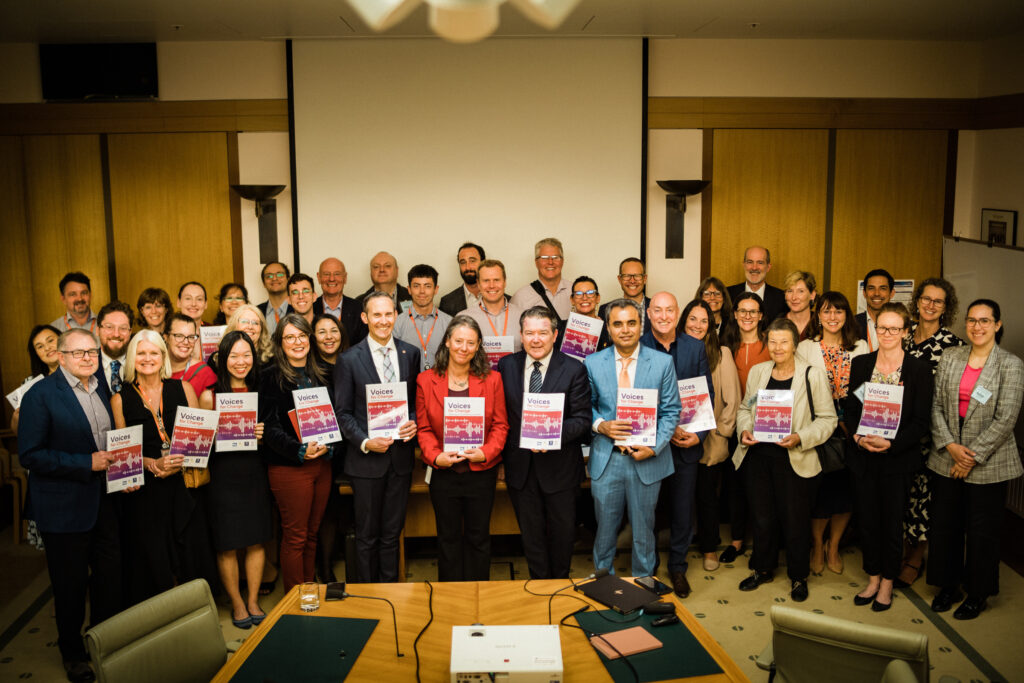Decision Makers Lack Understanding of Crucial Role of Advocacy, Charity Sector Report Finds
The ‘Voices for Change’ report released today finds most Australian charities don’t think state and federal governments have a good understanding of their advocacy role, with only 5% of charities reporting that governments “completely understood” the role of advocacy by charities.
Despite this, the report found that advocacy was the most essential tool for charities to affect positive change across a variety of policy areas, with 79% of respondents reporting advocacy is ‘very or extremely important’ for their charitable purpose.

“If charities can’t advocate, then they can't make policies more fair and inclusive,” says Hassan Mirbahar, Coordinator of the Stronger Charities Alliance which includes more than 120 member organisations.
“Crucially, this report shows us that the organisations who did invest in advocacy over the last 5 years have seen positive and lasting results that make the world a better place.”
“Current legislative gaps are hindering the potential of the civil society sector to make an even more positive impact. Fortunately, this report lights the way for the Parliament to maximise charities’ contribution.”
The 'Voices for Change' report, by Professor Sarah Madison of the University of Melbourne, Stronger Charities Alliance, ProBono Australia, and the Australian Democracy Network, surveyed a wide range of Australian charitable organisations, ranging from peak bodies to small organisations.
The report showcases examples of successful civil society advocacy efforts, such as bringing attention to the harms of the 'Robodebt' scheme and assisting marginalised communities such as asylum seekers.
But the wide-ranging report also found that, of survey respondents, 47% disagreed that the Australian Charities and Not-for-profit Commission (ACNC) has been free of political interference, 45% of respondents were “extremely concerned” about anti-protest laws in Australia, and 46% believe that government is either “entirely influenced” or “mostly influenced” by the corporate sector.
Members of the Stronger Charities Alliance want to bridge the gap between Parliament and the civil society sector highlighted in this report.
“We clearly need to improve our partnership with decision-makers,” says Saffron Zomer, Executive Director of Australian Democracy Network which convenes the Stronger Charities Alliance.
“A healthy democracy requires a robust civil society with many different kinds of inputs to inform decisions. We've surveyed the sector, we've identified the obstacles to having that robust public voice in Australia, and we're calling on the Parliament to fix it with us.”
“For 30 years, successive Australian governments have looked into charity sector reforms, but many of them remain unimplemented,” says Saffron Zomer. “Now is the time for proactive reform. We can turbo-charge the charity sector to do even more good at a time when Australia really needs it.”
Previous charity sector reports (2017 ‘Civil Voices’ and 2004 ‘Silencing Dissent’) found that government attempts to silence criticism was causing some charities to self-censor their advocacy rather than risk deregistration, funding cuts, or loss of DGR status. However, the new ‘Voices for Change’ report indicates that charities feel more positive about engaging in advocacy work without facing any punitive actions.
“With this new government, we have a rare opportunity to get proactive reform that will actually increase the ability of charities to advocate on their issues”, says Alice Drury, Acting Legal Director at Human Rights Law Centre, a member of Stronger Charities Alliance. “And as an alliance, we need to seize it with both hands and have a united front.”
Saffron Zomer, Executive Director of Australian Democracy Network said, “Rather than serving as an ambulance at the bottom of the cliff, charities should be allowed to prevent people from falling off in the first place. That’s what advocacy is all about.”
Journalists with enquiries may contact Ash Berdebes on 0403 288 479 or ash.berdebes@australiandemocracy.org.au